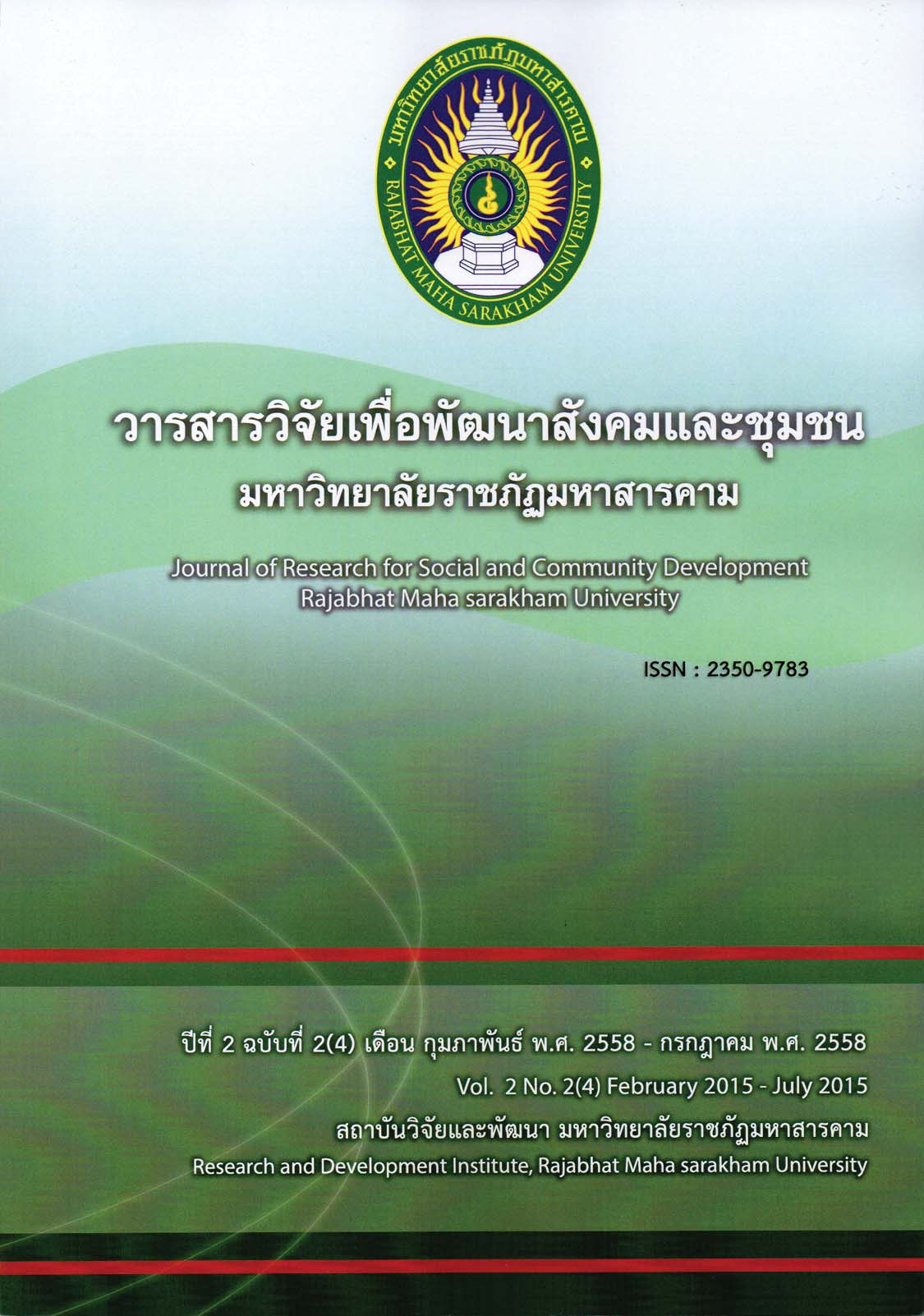The Livelihood curriculum development for enhancing agricultural worker in self-reliance
Keywords:
curriculum, self-reliance, community learningAbstract
This research aims to develop curriculum for enhancing a Agricultural worker in selfreliance research was divided into four steps by employing research and development.
The statistics used for analysis data were mean ( X ), percentage, standard deviation (S.D.)
and t – test (dependent samples). The research was presented in the form of descriptive
analysis. The research results were found that : 1. This curriculum has been consisted of 10
components, 8 learning units and consuming 19 hours’ time. The contents have been based
on righteous–vocation on the topic of “ Laying-chicken Raising” . 2. The post test scores had
higher than pre test scores with statistical significance at the level of .05. All agriculturists
gained testing scores 80% up. The agriculturists’ self–dependence was found at most level.
Their satisfaction in learning accordingly to righteous–curriculum was found at most level.
References
Provincial Administration’s local publisher.
The Office of National Economic and Social Development Board. (2008). The 9th Economic and Social Development Plan 2002-2006. Bangkok : The Office of National
Economic and Social Development Board.
The Office of National Economic and Social Development Board. (2012a). The 11th Economic and Social Development Plan 2012-2016. Bangkok : Bangkok : The Office of National Economic and Social Development Board.
(2012b). The Content Sum up of the 11th Economic and Social Development Plan 2012-2016. Bangkok : Bangkok : The Office of National Economic and Social
Development Board.
Natsupha, Chatthip. (2001). Community economy method: theoretical proposal in different social context. Bangkok : Withithat Foundation.
Phetprasert, Narong. (1998). The study of the community business’ possibility. Bangkok :The Political Economy Study Center, Chulalongkorn University.
Aunkham, Bannathon. (1987). Participation pattern. Bangkok : The Office of Anti-hard Drug Commission
Walaisathian, Parichat, and et al. (2010). The happiness indicator, creation strategy, and giving for the happy community. Bangkok : The Institute of Learning Promoting for the Happy Society.
Wasi, Prawet. (1987). Agricultural Buddhism and Thai society’s peace. Bangkok : Mo Chaoban.
(1998). Strategic locality community for the sufficient economy, morals, and health. The 2nd publishing. Bangkok : Phikhanet Printing Center.
Wasi, Prawet. (2010). The proposal of the education system alternative which is suitable to Thai people’s health. Bangkok : Thai Health Promotion Foundation. Rittidet, Prasopsuk. (2007). The adaptation of the farmer communities in Kula Ronghai Area. Maha Sarakham : Maha Sarakham University.
PhrathamPidok (Po. Au.Payutto). (1999). The pure local wisdom for Thai education.
Bangkok : Teacher’s Council of Thailand.
Namthep, Lamduen. (1994). The reaction between the activity, informal education, and community’s learning process. Chiang Mai : Chiang Mai University.
Samkoset, Warakon, and et al. (2010). The proposal of informal education that is suitable to Thai people’s health. Bangkok : Thai Health Promotion Foundation.
Angsumalin, Sarot and et al. (2004). The rural households’ credit needs. Bangkok : The Thailand Research Fund.
Sanyawiwat, Sanya. (1987). Sociology Theory. Bangkok : Typer of Chulalongkorn University.
Ruaisungnern, Sawaeng. (2009). The empirical land resources development for the selfdependent agriculture. KhonKaen : Faculty of Agriculture, KhonKaen University.
Downloads
Published
How to Cite
Issue
Section
License
Articles that are published are copyrighted by the authors of the articles







